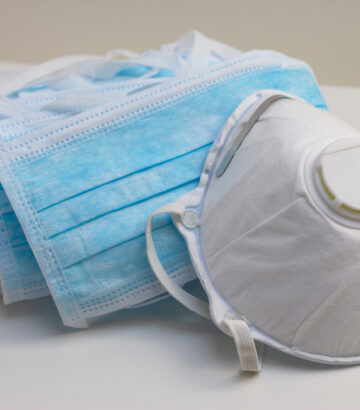Letter to HICPAC Members
Subject: Urgent Concerns and Recommendations Regarding HICPAC Draft Guidelines
From: Infection Prevention Team, World Health Network
Dated: August 7, 2023
Dear Member of the Healthcare Infection Control Practices Advisory Committee (HICPAC),
As health care professionals and consumers of healthcare, We appreciate the efforts by HICPAC to update the 2007 CDC’s Isolation Precautions Guidelines. However, We have significant concerns regarding the current draft recommendations discussed at the June 8-9, 2023, meeting.
The nature of your guidance will influence practices not only within the United States but globally, which necessitates careful consideration of recent scientific advancements, public health risk mitigation and stakeholder input.
From the June 2023 HICPAC meeting, it is evident that the draft recommendations significantly weaken protections against infectious aerosols, particularly SARS-CoV-2. The current approach conflicts with internal CDC research and public guidance, potentially putting both health care personnel and (often high risk) patients at serious risk.
- Inadequate Consideration of Aerosol Transmission: The draft recommendation underestimates the role of inhalation of respiratory pathogens, a key mode of transmission. The proposed categories of “air” and “touch” may lead to insufficient protection, risking the health of healthcare workers and patients. For instance, “air” conflates risk from aerosol and droplet spread. Specific standards and attention to aerosol spread of infection have been well established and in place for over ten years to mitigate risk from active tuberculosis.
- Deficiencies in Respiratory Protection: HICPAC’s findings that surgical masks are as effective as respirators contradict extensive scientific evidence and NIOSH recommendations. The lack of fit and filtration in surgical masks can lead to up to 50% leakage, putting healthcare workers and patients at risk. While surgical masks have traditionally been used pragmatically in USA health facilities for routine respiratory protection they fail to ensure adequate respiratory protection against infectious aerosols, such as SARS-CoV-2 and tuberculosis.
- Lack of Comprehensive Measures: The draft does not discuss or include adequate core control measures like ventilation, UV disinfection, HEPA filtration and NIOSH-approved respirators. No guidance is provided for their routine use. This is alarming given the substantial research emphasizing the importance of aerosol transmission control. In addition no consideration is given to the frequent transmission of SARS-CoV-2 by asymptomatic people, including children.
- Need for Inclusive and Transparent Process: The HICPAC discussions have had a notable absence of experts in aerosol transmission and ventilation, as well as an absence of frontline personnel, unions, and patient safety advocates. Contrary to other CDC committees, the process lacks public access and engagement. There needs to be an open process that includes experts in these fields, with full transparency and public involvement.
In view of the upcoming August 2023 meeting where the revision is expected to be voted on, we urgently request HICPAC to review the June draft and expand its scope to include the full body of scientific evidence and develop guidelines that truly maximize protection of healthcare workers and patients.
Immediate Action Required:
- Seek Broad Stakeholder Input: Engage health care personnel, industrial hygienists, engineers, scientists, respiratory protection experts, NIOSH, and OSHA. In addition, representative health provider organizations and patient advocates can provide a unique user-at-risk perspective.
- Enhance Transparency: Open meetings to the public, post all related documents, and operate under FACA guidelines.
- Recognize Aerosol/Inhalation Transmission: Fully account for measures that prevent transmission of infectious aerosols.
- Maintain Explicit Precautions: Avoid minimal protections and ensure that protections are based on exposure assessments, not merely cost considerations.
Your prompt attention to these concerns is crucial to the development of robust, science-based guidelines that prioritize the well-being of healthcare professionals and the patients they serve.
Sincerely,
Infection Prevention Team, World Health Network











